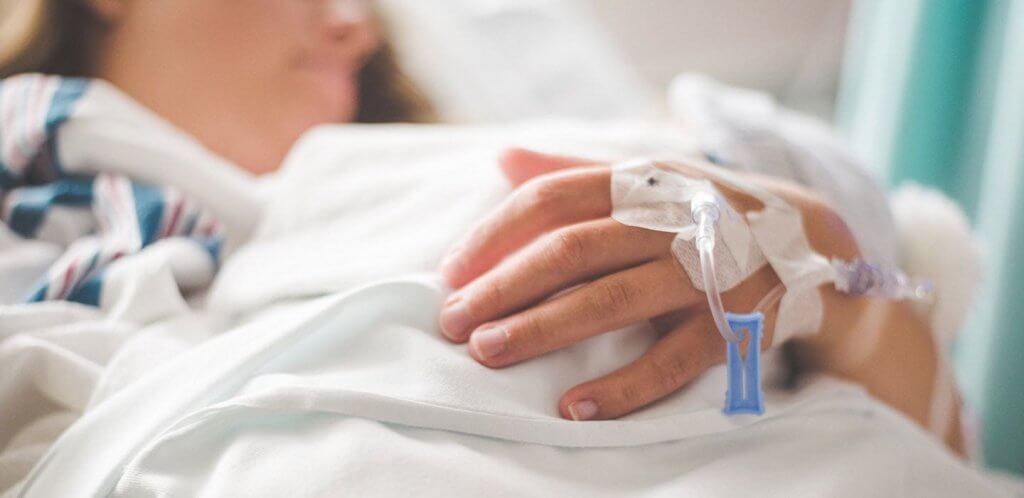Work Accident
Specialist Clinical Negligence Solicitors
APIL Accredited Solicitor
We Put Our Clients First
No Win No Fee
Help with Rehabilitation & Recovery
Call 0800 0747 644 now or request a callback
Meningitis Claims Solicitors: Missed & Delayed Diagnosis
Meningitis is an infection of the meninges, the protective area around the brain and spinal cord. There are many different types of meningitis and although the disease is commonly associated with children, it can affect people of all ages. The symptoms of meningitis often occur suddenly, and the effects of the illness can be devastating.
Early diagnosis and treatment are crucial; if left untreated, the germs responsible for causing meningitis can cause septicaemia. Delays in diagnosing and treating meningitis can lead to severe complications – including death – and constitute medical negligence. Common medical errors in cases of meningitis clinical negligence include:
- A failure to thoroughly investigate the patient
- Complete misdiagnosis (wrongly diagnosing children with viral infections)
- Failing to admit children with temperatures higher than 38
- Discrepancies in patients’ notes
If you have been affected by medical negligence associated with meningitis misdiagnosis, call our Medical Negligence Solicitors today and speak to a member of our highly experienced team.
Types of Meningitis
There are three main types of meningitis: bacterial, viral and fungal. The most dangerous type of meningitis is bacterial; it requires intensive treatment with a range of antibiotics and quickly causes septicaemia.
Meningococcal bacteria, Pneumococcal bacteria, Group B Streptococcal bacteria, and E.Coli bacteria are all capable of causing bacterial meningitis. Newborn babies are most likely to be affected by Group B Streptococcal (GBS) and E.Coli.
Viral meningitis is the least threatening form of the disease; those affected (including children) usually recover quite quickly, without medical intervention. Fungal meningitis is rare in the UK, but it can be serious, particularly as it generally affects individuals with compromised immune systems.
Symptoms of Meningitis
All parents should be aware of the symptoms of meningitis, and doctors should take extra care to look for signs of meningitis when examining children. Doctors should also be aware of the guidelines that have been set in place to protect children who are displaying potential symptoms of meningitis, such as the admission of any child with a high temperature to hospital for observation. Typical symptoms of meningitis include:
- Severe headache
- Neck pain
- Sensitivity to light
- High temperature
- Non-blanching rash
We work on a no win no fee basis.
Find out how much you could claim for your injury.
98% of Clients Would Recommend Us to a Family Member
In children, the symptoms may be slightly different. In babies, one of the main symptoms may be an altered cry and, instead of high temperature a low temperature may take hold. Babies may also become unresponsive or difficult to wake and are unlikely to feed well.
The symptoms of meningitis mimic those of other, less serious conditions and are therefore sometimes missed, particularly if the patient is relatively well at the time of seeing the doctor but deteriorates rapidly after the initial examination. Failing to identify the signs of meningitis quickly can result in a delayed diagnosis, delayed treatment, and a heightened risk of complications.
Meningitis Complications
Bacterial meningitis is the most threatening type of meningitis, particularly for young children. The disease can advance quickly, causing children to become dangerously ill in a matter of hours. Early diagnosis and treatment are essential to limit the complications associated with meningitis and septicaemia. If doctors fail to identify the illness and begin treatment quickly, the chances of patients being left with life-long complications increase significantly. Permanent and life-changing complications typically include hearing loss, brain injury, extensive scarring of the skin (which may cause movement to be restricted) and amputation.
Making a Meningitis Claim
Meningitis is a very severe illness and, as such, treating it successfully can be extremely difficult; even individuals who receive the very best of prompt medical care are still at risk of severe complications including death and life-long disability. Even so, research shows that prompt medical care can help to increase the likelihood of recovery from meningitis, and reduce the risk of extensive complications.
If you feel that you or a loved one has been affected by medical negligence associated with meningitis, you have every right to make a claim, either for yourself or on their behalf. It is also possible to make claims on behalf of individuals who have since passed away.
What Happens If I Want To Claim?
The first thing you need to do is contact us. You will be invited to meet with one of our solicitors to discuss your case in detail; you will be treated compassionately and sympathetically and carefully guided through the investigation process.
Depending on the ways in which your meningitis battle has affected you, the compensation you receive as a result of your claim could go towards helping with rehabilitative therapy costs, prosthetic limbs, or simply towards recuperating costs associated with being out of work due to illness.
Let us help you




